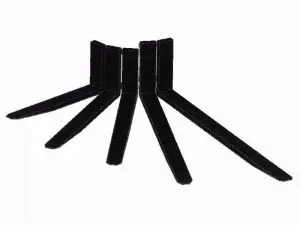By Mike Nelson, Posted in Forklift Attachments Forklift forks are the primary load-bearing elements that connect the forklift to the pallet or cargo. They come in a variety of designs and sizes, each tailored for specific tasks. Whether you're handling standard pallets, oversized materials, or heavy machinery, the right set of forks is crucial. While many people overlook the importance of forklift forks, they play a vital role in ensuring safe and efficient operations. Choosing the wrong fork can lead to instability, damage, or even accidents. There are several types of forklift forks, including standard, telescopic, pin-type, and block forks. Each has its own advantages and limitations. For example, telescopic forks offer adjustable length, making them ideal for different-sized loads, while pin-type forks are quick to install and remove. However, not all forks are designed to work with every forklift model. Interchangeability depends on factors like fork dimensions, mounting style, and the forklift's capacity. Even if two forks look similar, differences in weight ratings, attachment mechanisms, or structural design can make them incompatible. It’s important to check the manufacturer’s specifications before attempting to swap forks. Using non-compatible forklift forks can be dangerous. Safety standards such as OSHA regulations emphasize the importance of proper equipment use. If a fork is not rated for the load or doesn’t fit correctly, it could lead to tipping, collapse, or failure during operation. This not only puts workers at risk but also exposes businesses to legal liability. Moreover, environmental conditions matter. Forks used in corrosive environments, extreme temperatures, or high-moisture areas may require special materials or coatings. Using regular forks in these conditions can lead to premature wear and failure. To ensure safety and efficiency, follow these best practices: In short, not all forklift forks are interchangeable. While some models may allow for limited interchangeability, it’s crucial to prioritize safety, compatibility, and compliance. When in doubt, always reach out to an expert or manufacturer for guidance. If you're unsure whether your current forklift forks are suitable for your operations, contact us today. Our team of experts can help you find the right solution for your needs. At Koke Inc., we specialize in custom forklift forks made to your exact specifications. The cost varies depending on size, material, and quantity. We offer competitive pricing and personalized service. Call us at 800.535.5303 or visit our website to get a free quote today. Optical Communication Application Materials Low Refractive Index UV-Curable Resins,Fiber Optic Communication Coatings,High-Performance Optical Adhesives for Photonics Ningbo Merak Advanced Materials Technology Co., Ltd. , https://www.merak-tech.comAre All Forklift Forks Interchangeable?
 Forklifts are essential tools in warehouses, manufacturing facilities, and distribution centers. Among their key components, forklift forks are critical to lifting and moving heavy loads. But the question remains: are all forklift forks interchangeable? The answer isn’t as straightforward as it might seem. Let’s explore this topic in depth.
Forklifts are essential tools in warehouses, manufacturing facilities, and distribution centers. Among their key components, forklift forks are critical to lifting and moving heavy loads. But the question remains: are all forklift forks interchangeable? The answer isn’t as straightforward as it might seem. Let’s explore this topic in depth.The Role of Forklift Forks
Understanding Fork Types and Compatibility
Safety First: Why You Can't Always Swap Forks
Best Practices for Forklift Fork Use
Need Help Choosing the Right Forks?
How Much Do Forklift Forks Cost?